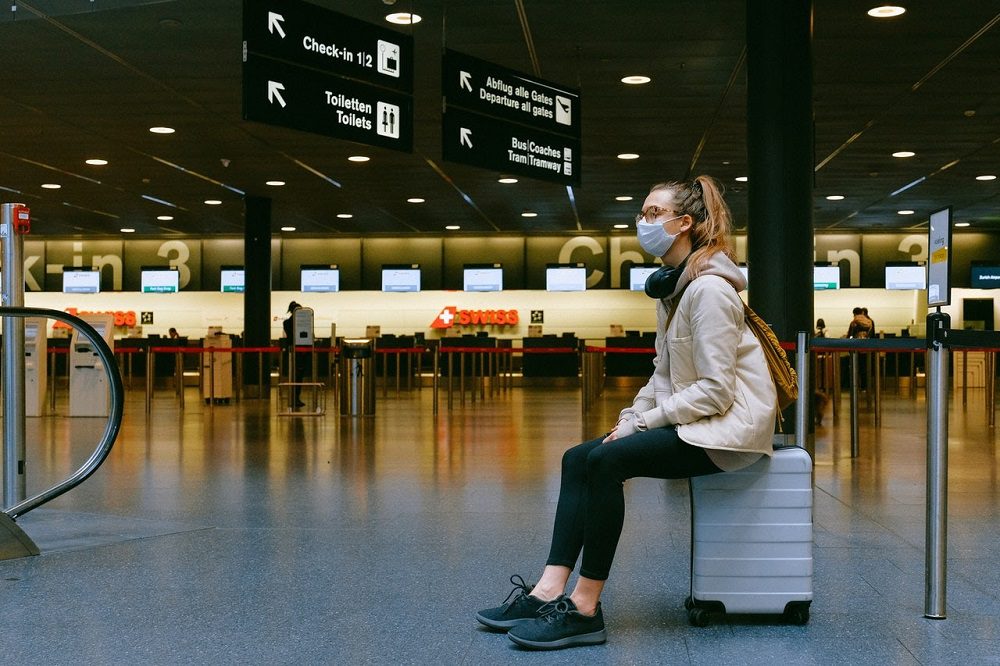Hooray for surviving 2020 and making it alive to 2021!
But seriously, there are a million reasons to be thankful for. While the pandemic is still here, we?re seeing the light at the end of this dark tunnel. Finally, vaccines are now being rolled out around the world, including countries like the UK and the USA. 2021 is a year of healing, and hopefully, freedom. Don?t you just miss leaving your home and traveling?
However, there are a lot of questions that remain unanswered. Is it safe to travel again? When we can get out and explore the world? Even with the vaccinations and other solutions, what is travel gonna look and feel like? Will things go back to the way it used to be pre-pandemic after the vaccines?
If you?re thinking about future travel plans after getting vaccinated, here are 7 things experts want you to know before finalizing your trip.
Vaccines help ease travel restrictions
The travel industry is pretty confident that the rollout of vaccines will encourage countries to reopen borders and ease their travel restrictions. More hotels, airlines, tour companies, attractions, and other travel businesses will boom again. We?ll also see a notable boost in confidence among travelers themselves.
Some countries, including Singapore, are considering relaxing travel restrictions for those who have had the vaccine once they?ve been proved to significantly reduce the spread of the virus.
But experts claim that they?re not 100% effective
Can you still remember when the WHO said in January 2020 that people who are not sick and aren?t showing any flu symptoms are NOT required to wear face masks? Yup, that statement didn?t age well. But it?s a good thing that the leaders learned from their previous mistakes and now they?re using disclaimers about the vaccine until its effectiveness is certain.
According to experts, some globally approved vaccines, like Pfizer and AstraZeneca, have been shown to limit the worst effects of COVID-19. However, it?s still unclear whether they?ll make you immune or they?ll just reduce the symptoms. In other words, you might still be able to contract and spread the virus even after getting vaccinated.
That being the case…
Facemasks, social distancing, and sanitizers are here to stay
When it comes to returning to normality, we still have a long way ahead of us so put your masks on. Everyone, including the vaccinated ones, should still exercise caution. Wear face masks. Wash your hands. Observe social distancing and limit physical contact with people. We still need to do this until researchers prove that it prevents transmission and a sufficient population has already been vaccinated.
Choose airlines and accommodations with good health and safety guidelines
Just because you?re vaccinated doesn?t mean it?s okay to be lax on your travel choices. Don?t let your guard down and choose hotel accommodation, airlines, and destinations with established health and safety protocols.
Ground your travel decisions on health and safety, not the price and weather. Patronize hotels and other tourism establishments with strengthened disinfection measures and contactless protocols. It?s a good sign if they still require everyone to wear face masks, observe social distancing, and sanitize hands.
Choose your destination wisely
It?s a no-brainer to choose destinations that are more open and less crowded. Aside from this, look at the current infection rate in the area and whether or not the majority of the population have had vaccinations.
The crowd is still controlled
Speaking of social distancing, large gatherings might still be prohibited until the effectiveness of the vaccine is proven. Tourist attractions may still limit the number of their guests to avoid overcrowding. Concerts and parties are still limited if not restricted.
Some countries may require proof of vaccination
Over time, some countries will require proof of vaccination as an alternative to testing and quarantine prerequisites. In countries where the authorities have done a great job in curbing the local transmission, vaccines may even become a condition of entry.
Skipping testing and quarantine for vaccinated arrivals is also a possibility. For instance, vaccinated travelers entering Cyprus and Seychelles will be exempt from testing and self-isolation requirements.
Medical records are as important as your passport
Keep every doctor?s appointment notes, medical certificate, and other relevant medical paperwork when you go get your vaccine. You?ll be likely to receive a vaccine certificate with your name, vaccination date, and the type of vaccine administered. And don?t forget these things, along with your passports and visas when you travel.?
Author Bio: Carmina Natividad is a free-spirited writer who loves exploring the great outdoors. She loves traveling, eating, taking food and streetscape photographs, and simply enjoying new experiences and writing about them. For more about hotels and travel blogs, visit Hotel Isaacs Cork.

As the editor of the blog, She curate insightful content that sparks curiosity and fosters learning. With a passion for storytelling and a keen eye for detail, she strive to bring diverse perspectives and engaging narratives to readers, ensuring every piece informs, inspires, and enriches.










